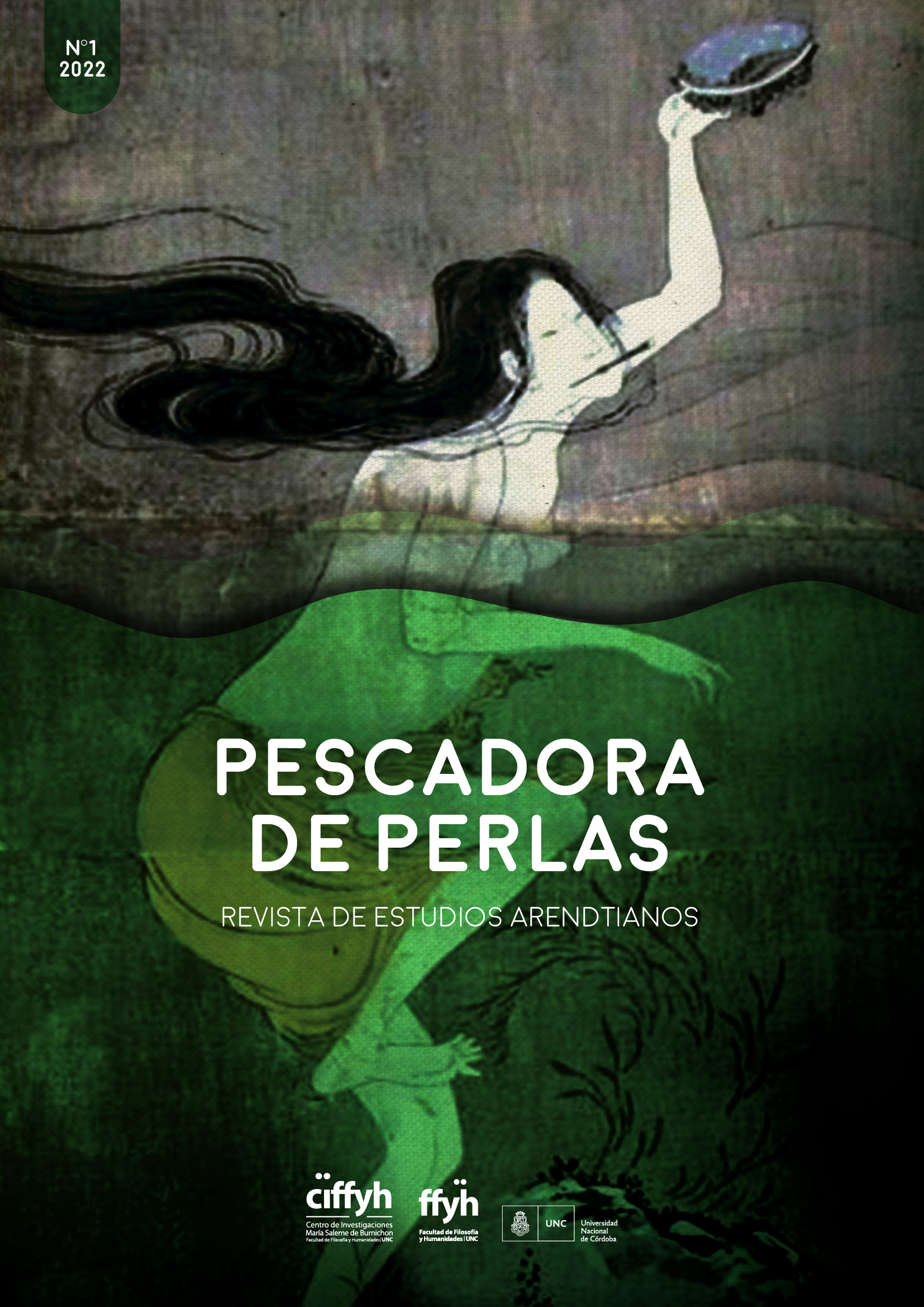Totalitarianism and Perversion of the Law
Keywords:
law, speech, totalitarianism, obedienceAbstract
Arendt's examination of the Eichmann case provides another point of view to elucidate a fundamental aspect already present in The Origins of Totalitarianism. According to Arendt, the ambition of totalitarianism is less to control human spontaneity than to eradicate it completely and make it superfluous. This can only be achieved by setting up devices for twisting, deviating and inverting human relationships and ways of life. While it requires the complicity of all to implement such a project, it also requires actors involved to the point of direct criminality, such as Eichmann. Eichmann's justifications in the Jerusalem trial hint directly at the "dis-interestedness" of the totalitarian actor Arendt speaks of in Origins: someone who has withdrawn from himself and deposited his own self and his capacity to act in the self of the Führer, identified with the people. As if nothing was left of his spontaneity but his vital energy. Eichmann also hid behind the famous "obedience to orders", but Arendt pays special attention to the precision that Eichmann adds, according to which he obeyed the Führer's will, which had acquired the force of law. Claude Lefort calls this identification a "perversion of the law". In what follows, I intend to base our analysis of totalitarian perversion and the perversion of the law on a recent work by the jurist Olivier Jouanjan, devoted to legal ideology as it appears in the Nazi discourse and practice of law.
References
Abensour, M. (2006). “Architecture et régimes totalitaires”, en De la compacité: Architecture et régimes totalitaires, le cas Albert Speer. Sens&Tonka.
Adler, H.-G. (2017). Theresienstadt 1941-1945: The Face of a Coerced Community. Cambridge University Press.
Arendt, H. (1998). Los orígenes del totalitarismo (Trad. Guillermo Solana). Taurus.
Arendt, H. (2002). Autorité, tyrannie, totalitarisme [1956], en Les origines du totalitarisme. Eichmann à Jérusalem (pp. 880-895), Gallimard.
Arendt, H. (2003). Eichmann en Jerusalén. Un estudio sobre la banalidad del mal (Trad. Carlos Ribalta). Lumen.
Arendt, H. (2005a). ¿Qué queda? Queda la lengua materna. Conversación con Günther Gauss, en Ensayos de Comprensión 1930-1954 (pp. 17-40) (Trad. Gaizka Larrañaga Argárate). Caparrós Editores.
Arendt, H. (2005b). Réplica a Eric Voegelin, en Ensayos de Comprensión 1930-1954, (pp. 483-492) (Trad. Gaizka Larrañaga Argárate). Caparrós Editores
Arendt. H. (2007). Responsabilidad personal bajo una dictadura, en Responsabilidad y juicio (pp. 49-74) (Trad. Miguel Candel). Paidós.
Boltansky, L. y Chiapello, E. (1999). Le nouvel esprit du capitalisme. Gallimard.
Delmas-Marty, M. (30 de junio de 2017). Lettre ouverte, en Le monde.
Forti, S. (2015). New Demons. Rethinking Power an Evil Theory Today. Stanford University Press.
Jouanjan, O. (2017). Justifier l’injustifiable. L’ordre du discours juridique nazi. PUF.
Klemperer, V. (1996). LTI, la langue du III° Reich. Albin-Michel.
Lefort, C. (2013). La complicación: retorno sobre el comunismo. Prometeo.
Leibovici, M. (2002). Les fables politiques de Charlotte Beradt, en Beradt, C., Rêver sous le Troisème Reich, Payot.
Leibovici, M. y Roviello, A.-M. (2017). Le pervertissement totalitaire. La banalité du mal selon Hannah Arendt, Kimé.
Neumann, F. (2005). Behemoth. Estructura y práctica del nacional-socialismo. FCE
Supiot, A. (2015). La gouvernance par les nombres. Cours au Collège de France (2012-2014). Fayard.
Weil, N. (23 de febrero de 2017). Le droit au service des nazis, en Le monde.
Young-Bruehl, E. (2006). Why Arendt matters. Yale University Press.
Downloads
Published
Issue
Section
License
Copyright (c) 2022 Martine Leibovici

This work is licensed under a Creative Commons Attribution-NonCommercial-ShareAlike 4.0 International License.
Consultar los Avisos de derecho de autor. Aquellos autores/as que tengan publicaciones con esta revista, aceptan los términos siguientes:
- Los/as autores/as conservarán sus derechos de autor sobre el texto, y garantizarán a la revista el derecho de primera publicación, el cual estará simultáneamente sujeto a la Licencia de reconocimiento de Creative Commons: Atribución – No Comercial – Compartir Igual (by-nc-sa); no se permite un uso comercial de la obra original ni de las posibles obras derivadas, la distribución de las cuales se debe hacer con una licencia igual a la que regula la obra original.
- Después de la publicación, los trabajos podrán ser reproducidos por los autores en otros medios siempre que no se omita la indicación de la publicación original en esta revista. En este sentido, los autores/as podrán adoptar otros acuerdos de licencia no exclusiva de distribución de la versión de la obra publicada (p. ej.: al depositarla en un archivo institucional o publicarla en un volumen monográfico) siempre que se indique la publicación inicial en Pescadora de Perlas.
- La cesión de derechos de primera publicación de los/as autores otorga a Pescadora de Perlas autorización para que el trabajo sea colocado en el repositorio institucional de la Universidad Nacional de Córdoba y difundido a través de las bases de datos.



